Parliament Obeys Orders Of Supreme Leader: Iranian Lawmaker
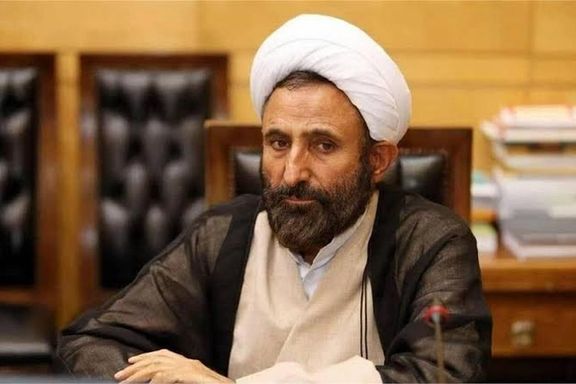
An Iranian legislator says the country’s parliament is obeying the Supreme Leader and will carry out his orders.

An Iranian legislator says the country’s parliament is obeying the Supreme Leader and will carry out his orders.
Hossein Jalali made the claim on Tuesday while lawmakers are supposed to represent the people and not to be under the thumb of Supreme Leader Ali Khamenei.
Jalali’s statement is not news to most Iranians who over the years have witnessed numerous times how the legislature follows directives from Khamenei’s office on key issues.
The member of the cultural commission of the parliament further defended the performance of the 11th Islamic parliament saying although there were some mistakes, the overall performance of the current Iranian legislature was acceptable.
In recent months many commentators in Iran have slammed the hardliner-dominated parliament for being ineffective both in terms of legislation to help the economy and also for being weak in demanding accountability from the government.
Last month, Iran’s Supreme Leader Ali Khamenei praised the country’s “revolutionary parliament” for passing a bill in 2020 that complicated nuclear negotiations.
“From the beginning of this parliament [2020], based on information I had, I believed that it is a revolutionary parliament, and now after three years I reiterate that,” Khamenei told 290 members of the legislature.
The current parliament was elected in February 2020 in a controversial vote when the Guardian Council, loyal to Khamenei, banned hundreds of relatively moderate candidates and allowed hardliners to gain a strong majority in the legislature.

Saudi Arabian Oil Company and TotalEnergies have signed an $11 billion contract to build a petrochemicals complex near an offshore field shared by Iran, which is under US sanctions and isolated.
The joint offshore field -- called Arash in Iran and Durra by Saudi Arabia and Kuwait -- was discovered in 1967 and is estimated to have a total proven reserves of around 310 million barrels of oil and 20 trillion cubic feet of gas. Iran claims any development without its consent breaks international laws, 40 percent of the field located in its territorial waters.
Saudi Aramco Gulf Operations Company signed a Memorandum of Understanding in December with Kuwait Gulf Oil Company (KGOC) to develop the joint Durra gas field, Saudi state news agency (SPA) reported.
The development aims at producing 1 billion cubic feet of gas and 84,000 barrels of liquefied gas per day, according to the Kuwaiti state news agency.
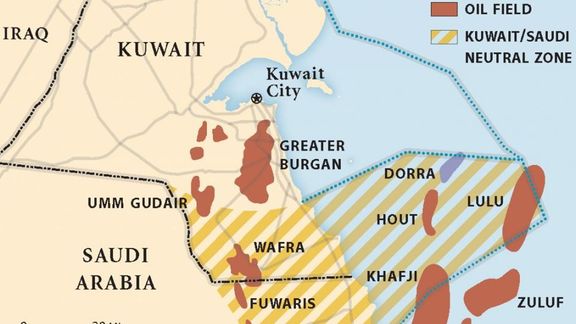
The $11 billion "Amiral" complex, a future world-scale petrochemicals facility expansion at the SATORP refinery in the city of Jubail in the kingdom's Eastern Province, is the latest announcement which will likely irk Iran.
Criticizing the Iranian government’s inaction vis-a-vis the project, Chairman of the Board of Directors of the Association of Iranian Oil and Gas Drilling Companies Hedayatollah Khademi told ILNA on Sunday, “It seems that we have surrendered the joint fields to the neighbors.”
Highlighting the fact that Riyadh has significantly developed and extracted from joint fields such as Arash/Durra, Farzad-A, Farzad-B, and Forouzan despite the fact that Iran dug the first exploratory wells in the fields. “We have not done anything," he said, accusing the regime of sitting idle in the face of the encroachment.
In March last year, Kuwait and Saudi Arabia started projects to extract gas from the field. Iran's foreign ministry spokesman at the time, Saeed Khatibzadeh said that as Iran has a share in the field it must be included in any action to operate and develop it. "The Arash/Al-Durra gas field is a joint field between Iran, Kuwait and Saudi Arabia. Parts of it are located in areas between Iran and Kuwait whose water boundaries have not been defined,” he said.
The new deal, which had been wrangled over by Aramco and TotalEnergies since 2018, will enable the Saudi Arabia and Kuwait not only to extract from the field but also process the gas and condensates to petrochemical products, which yield even higher profit, a kick in the teeth for the regime which only this year signed a detente with Saudi to resume diplomatic ties.

In 2001, Iran launched projects to extract gas from the field, but Kuwait threatened to file lawsuits at international bodies. The projects stopped after the Emir of Kuwait traveled to Iran and met with the then president Mohammad Khatami. In 2013, Iran announced that projects were restarted but they produced no results.
Integrated with the existing Saudi Aramco Total Refining and Petrochemical (SATORP) refinery in Jubail, the ‘Amiral’ complex will house the largest mixed-load steam cracker in the Persian Gulf region, with a capacity to produce 1.65 million tons of ethylene and other industrial gases annually.
The project, whose commercial operation is targeted to start in 2027, is expected to attract more than $4 billion in additional investment in a variety of industrial sectors and create about 7,000 jobs directly and indirectly in Saudi Arabia.
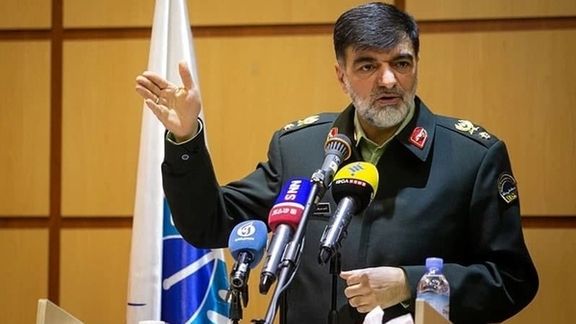
Iran’s infamous police chief Ahmad-Reza Radan will visit Russia to enhance cooperation between law enforcement entities of the two countries.
Iran’s Police Information Center announced on Monday that the brigadier general will meet his Russian counterparts to discuss "a range of issues."
A memorandum of understanding on bilateral cooperation in combating terrorism, human trafficking, and narcotics will be signed during his trip, Iranian local media reported.
Islamic Republic's Supreme Leader Ali Khamenei appointed Ahmadreza Radan as Iran's police chief in January after four months of popular anti-regime protests.
With Radan's track record as the heavy-handed former police chief of Greater Tehran, Kordestan and Sistan-Baluchistan provinces the appointment was immediately questioned by many Iranians on social media and by foreign-based Persian media.
Most of Radan's ill reputation dates back to his role as police chief during the post-election unrest in 2009 and the performance of his men at the Kahrizak detention center where several young protesters including children of some state officials were killed as a result of police brutality.
Radan's men were also seen in police vehicles running over protesters in the streets of Tehran on several occasions in 2009 and 2010. There is also a famous audio recording posted on social media in which Radan is ordering his men in Tehran to shoot anyone they can among protesters.
Radan was sanctioned for his human rights violations by the United States as early as 2010 and has been blacklisted by the European Union.
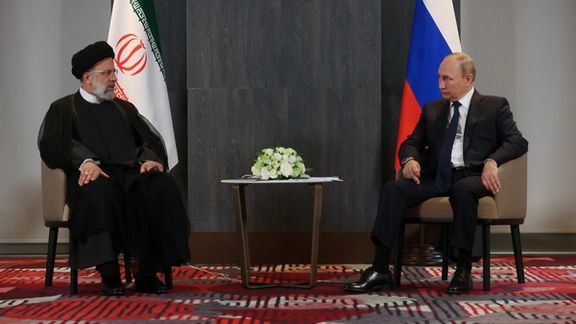
Following Saturday's abortive Wagner Group mutiny, Russian President Vladimir Putin spoke with Iranian President Ebrahim Raisi.
The Iranian president expressed full support for the Russian leadership in the wake of the Wagner mutiny, going a step further than sentiments of Iran’s Foreign Ministry which had said that the Islamic Republic supports the rule of law in the Russian Federation and considers the latest developments to be an internal Russian matter.
In a phone call with his Russian counterpart on Saturday, Iranian Foreign Minister Hossein Amir-Abdollahian said he is sure Russia would survive the current events.
Wagner Group led by a former Putin ally Yevgeny Prigozhin launched the apparent mutiny on Friday after alleging that the military had killed many of his fighters in an airstrike. The Russian Defense Ministry however denied this.
The Wagner fighters captured the city of Rostov hundreds of miles to the south before racing in convoy through the country, transporting tanks and armored trucks and smashing through barricades set up to stop them.

A deal was struck on Saturday, which spared Wagner's mercenaries from criminal prosecution in return for Prigozhin returning to base and moving to Belarus, ending the mutiny.
However, Russian state media reported Monday that Yevgeny Prigozhin is still facing charges for his armed insurrection, despite the Kremlin promising that the charges against him would be dropped.
Although Iran’s official reaction to the ‘Wagner rebellion’ was cautiously supportive of Vladimir Putin, Ali Motahari, the former deputy speaker of the parliament warned the authorities of the Islamic Republic not to continue linking the interests of the Iranian people to the interests of Russia.
He said that the authorities of the Islamic Republic should "know that Russia is not a strong party to lean on."
Former lawmaker Mahmoud Sadeghi tweeted Sunday that the Iranian authorities talk about being neutral but choose sides even in Russia's internal affairs, officially siding with Putin.
On Sunday, the former head of the Iranian parliament's National Security and Foreign Relations Committee, Heshmatollah Falahatpisheh, told Didban website that following Saturday's challenge by Wagner, Putin can no longer claim to be as powerful as before.
Falahatpisheh added that "It was naturally clear that Putin cannot have a stable future." He further remarked that "we are going back to the Yeltsin period".
Referring to the historic precedent, Falahatpisheh likened Putin to the actions of the Bolsheviks in 1917, sacrificing his foreign policy for his country's domestic politics. He opined that Putin might be able to defeat or isolate Wagner forces in the short run, but in the long run, he is no longer the powerful force of before.
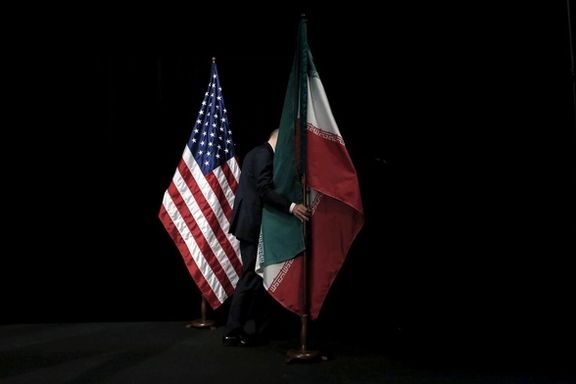
A foreign policy analyst in Tehran says that “an interim verbal nuclear agreement” with the United States cannot bring the long-term stability Iran needs.
Former Iranian diplomat and scholar Kourosh Ahmadi wrote in an article last week that “If the 2015 nuclear deal [JCPOA] has lost its non-proliferation value…the objective should be improving it” instead of aiming for an interim and limited deal “that cannot last more than one or two years.”
Ahmadi called a possible interim deal a temporary fix that cannot overcome the chronic instability that disrupts and hinders Iran’s economic progress. Do we want just to patch things up for a short period of time, he asked, or put the country on the road to progress.
Referring to media reports about “a new wave of negotiations between Iran and the United States over an “understanding” or “a verbal agreement,” Etemad Online website pointed out in an analysis that Iranian officials have not provided any information about such an agreement, although they have confirmed that negotiations have taken place in Muscat, New York and Doha. US officials have also made minimal statements about the talks to swap prisoners and release Iran’s assets in Iraq but ruled out any talks over the JCPOA.
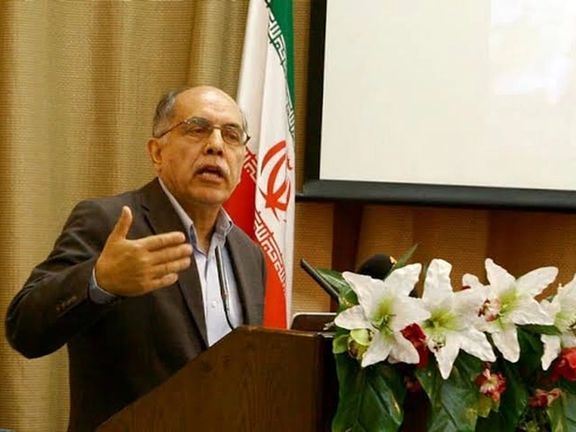
According to Etemad Online, it appears that Iran and the United States have reached an understanding about “stabilizing the current situation” and about some kind of “political cease-fire.” This will prevent crises at the points of contact, such as in Syria and the Persian Gulf. Etemad added that Iran on the other hand might be aiming for a détente with the United States alongside the rapprochement with Saudi Arabia, which can give Tehran access to its hard currency funds frozen abroad.
Etemad Online also opined that restored relations with Saudi Arabia can help Tehran achieve an agreement or an understanding with Washington. Based on the new deal Iran might agree not to enrich Uranium beyond 60 percent and stop installing new modern centrifuges while also promising to boost its cooperation with the IAEA, Etemad Online said, based on reports in Western media.
Also on the agenda of the negotiations are Iran’s cooperation with Russia in the war against Ukraine and the attacks on the US forces by Iran’s proxy groups in Iraq and Syria. The United States, on the other hand, will promise not to intensify the sanctions and instead, release more of Iran’s frozen assets abroad and facilitate Iran’s oil sales.

According to Nameh News website, Kambiz Mehdizadeh, an aide and son-in-law of former President Hassan Rouhani wrote in a tweet about the possibility of talks between Iran and the US: “An interim agreement or whatever you might call it is like a painkiller pill that can alleviate the symptoms of a cold. It can stop a runny nose, but it cannot help us to bring in foreign investments or help us purchase aircraft.”
On social media, Afifeh Abdi, an Iranian journalist and a foreign policy researcher, wrote in a June 22 tweet: “The ongoing negotiations over the Joint Comprehensive Plan of Action (JCPOA) are being furthered not because of the skill of Iran’s current negotiating team, but because of the strong US motivation to buy time and to keep Iran away from Russia and China. For the United States, these negotiations mean giving small concessions for strategic achievements!” Ms. Abdi added: “But what can Iran do? Iran has limited choices.”
In a comment under the post, a Twitter user wrote: “When Iran refuses to bring about essential economic reforms because its officials benefit from the ongoing corruption, and refuses to grant social liberties to the people, then the officials run the country on a day-to-day basis and try to get hold of hard currency to temporarily control the markets. Later, the United States will break its promises and the exchange rates will jump like a spring.”
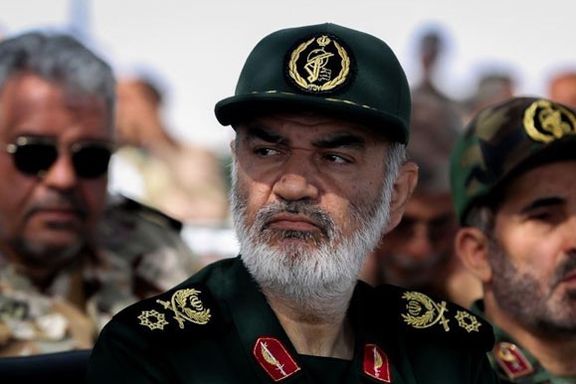
Iran's Revolutionary Guard commander says enemies should know that the Iranian people will not allow separatists to challenge the country’s security.
“Today's colonialism has used all its efforts and resources to create division and insecurity in Islamic countries, and it is necessary to be ready against such an attack,” claimed Hossein Salami.
He acknowledged that the Islamic Republic has many enemies, a favorite collective term of Supreme Leader Ali Khamenei to refer to the United States, Israel, US allies in the region and in Europe.
His comments come amid the reports that the regime has deployed heavy military equipment to the Kurdish regions of the country in the west.
Foreign Ministry Spokesperson Nasser Kanaani, however, played down the actions, and claimed that sending extensive military equipment to the Kurdish regions is among “the normal actions of the armed forces of the Islamic Republic to create security at the borders.”
Since October last year, the IRGC has bombed the positions of Kurds opposing the Islamic Republic in the autonomous region of Iraqi Kurdistan on several occasions.
These attacks came as Tehran accused Kurdish opposition groups of inciting nationwide protests in Iran.
In March, Ali Shamkhani, the then Secretary of Iranian Supreme National Security Council, signed a security agreement with Iraq during his trip to the Arab country to end the activities of the opponents of the Islamic Republic in the Kurdistan Region.